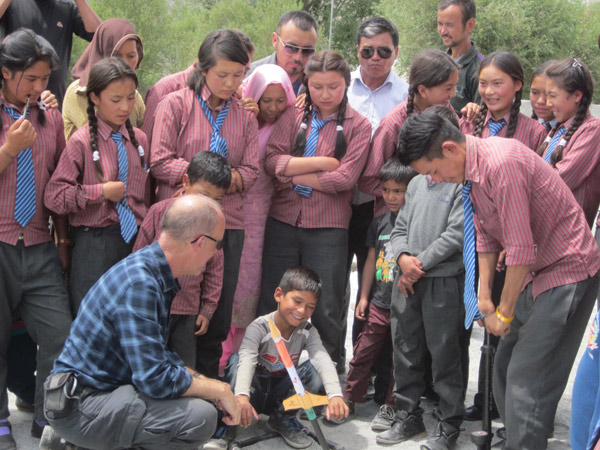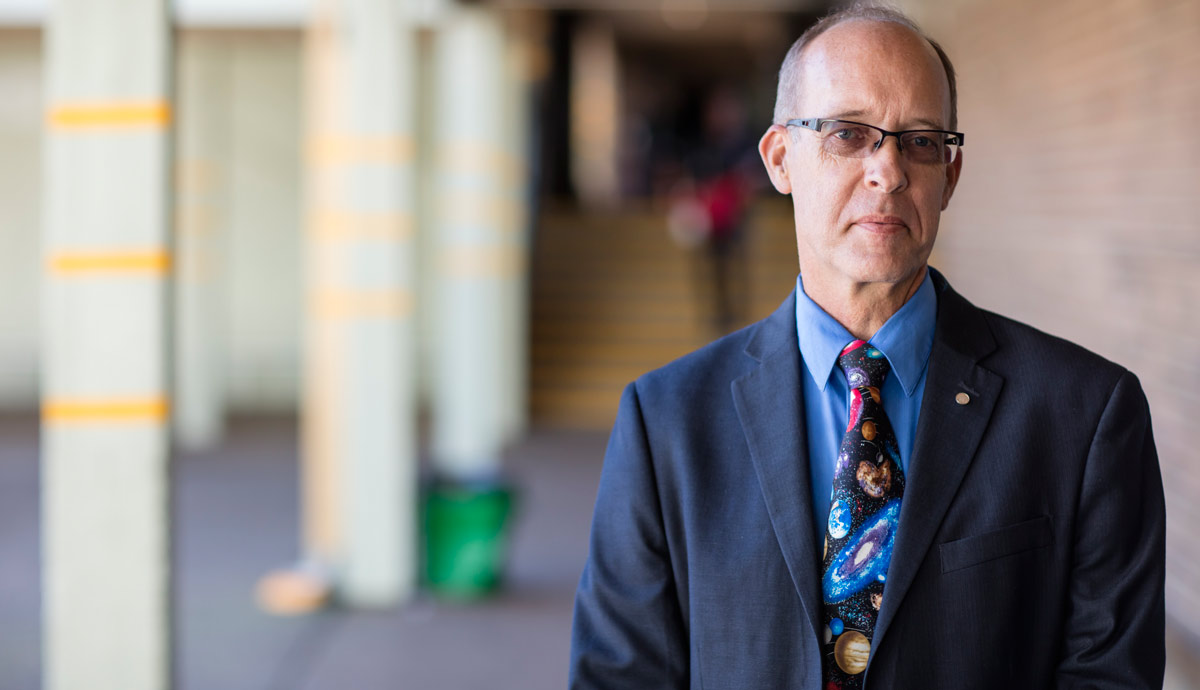January 17, 2017
Shooting for the stars leads to global teacher prize
UOW alumnus shortlisted for coveted global teaching award.
A UOW alumnus has been selected as one of the top 50 teachers in the world, for his dedication to teaching in the fields of Science, Technology, Engineering and Maths (STEM).
Dr Ken Silburn was recognised by the Varkey Foundation Global Teacher Prize in an announcement late last year. The Global Teacher Prize was set up to recognise one exceptional teacher who has made an outstanding contribution to the profession, as well as to shine a spotlight on the important role teachers play in society.
The only Australian teacher to be shortlisted for the prestigious award, Dr Silburn was selected from more than 20,000 nominees spanning 179 countries around the world, as one of the top 50 teachers.
“It’s absolutely amazing to be nominated, it has taken a while to sink in,” he said.
“When you read through the bios of the others included in the top 50, they’re all doing some incredible things. It’s nice to be recognised.”
Dr Silburn, currently the head science teacher at Casula High School, studied a Doctor of Education at UOW, where he focused on the use of technology in education.
A global leader in the field of science education, Dr Silburn founded the iSTEM program in 2012, giving high school students across Sydney’s South West and beyond a chance to meet like-minded peers and engage in activities not usually available in their schools: anything from robotics workshops, space labs, and tours of nuclear reactor facilities, to visits to universities and museums. iSTEM also runs an annual trip to the United States for Year 9-12 students and teachers from across Australia, where they experience a one-in-a-lifetime opportunity to take part in the Space Academy Program at the US Space and Rocket Center in Alabama.
Not one to take all the credit, Dr Silburn said the team of teaching staff around him could be thanked for the program’s success.
“All of these activities can happen because I have a terrific team at school and they all work so hard to get the activities out there,” he said.
“Whenever we hold an activity, like a trip to the Australian Museum, we open it up and parents and kids from different schools just turn up.”
In 2015 Dr Silburn was recognised for his leadership and excellence in science teaching in secondary schools with the Prime Minister’s Prize for Science. Last year, Dr Silburn was selected as one of 28 scientists and educators worldwide – and one of only six Australians, and six teachers overall – to participate in the NASA Spaceward Bound Program in India’s Ladakh region. Dr Silburn said there were numerous challenges faced in working in such an environment, with altitudes in excess of 5,500 metres.
Dr Silburn was able to extend his visit to India, with support from the Australian High Commission and Austrade, to present teacher and student workshops. This also included filming science demonstrations with India’s Department of Education.
“India’s population compared to Australia is incredible. As a result, they do things on such a big scale. The resulting videos will be shown to excess of 2.5 million students,” he said.
“The Indian education system was keen to absorb any training in science teaching. Especially incorporating student activities that could be made using general household materials. The biggest buzz of the year was however working with teachers and students in small remote schools. A big difference compared to working in Australia where we take education and technology use for granted.”

Dr Silburn was also recognised in the 2016 UOW Alumni Awards for his tireless efforts in the field of science education, receiving the Alumni Award for Professional Excellence.
The winner of the Varkey Foundation Global Teacher Prize 2017 will be announced at the Global Education and Skills Forum in Dubai on 19 March 2017.
